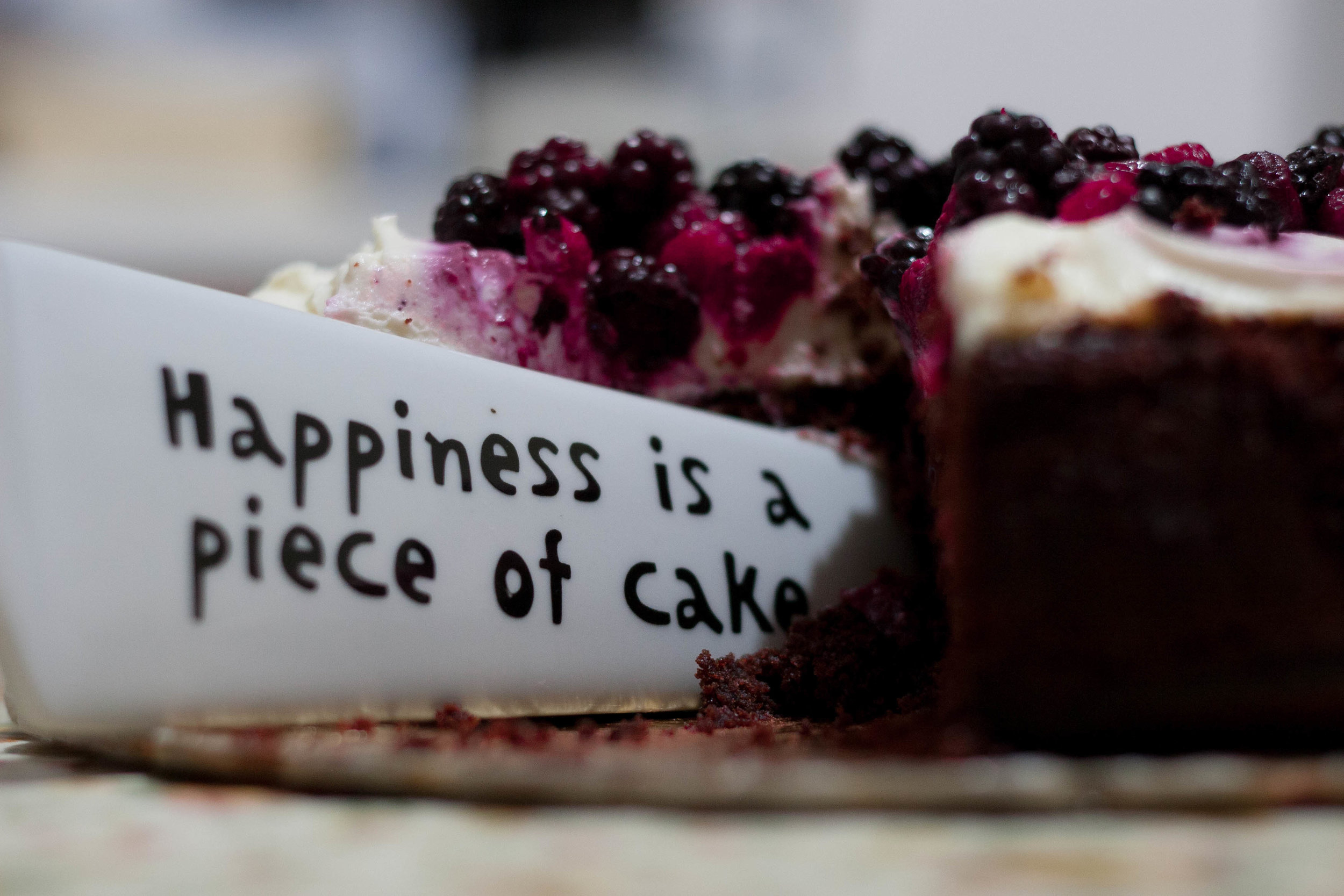It never feels good enough when it comes to food decisions and our minds are always racing. We want to feel like we are making the right decision but we always end up back in the same cycle of punishing our bodies, feeling shameful and moody, and ultimately are left feeling negative about ourselves. It doesn’t have to be this way. We don’t have to live in society's food ‘rules, ’ feel guilty, shameful, or confused about food any longer. There is another way!
The 5 Secrets to Quit Binging
At times, all of us have eaten a bit, or a lot more than is comfortable in our bodies. Holidays, celebrations or sometimes mindless eating in front of the TV can leave us feeling overly full. For some, this way of eating is more common and happens more frequently than we’d like. The new DSM-V, the Psychiatric Association’s manual on diagnosis, has created a diagnosis under the eating disorder umbrella called Binge Eating Disorder or BED. Whether you meet the criteria for this disorder, for bulimia, anorexia, or you just find yourself overly stuffed at times, these tools can be helpful:
1. Notice what types of foods you’re binging on and write them down.
It helps to look at your behavioral patterns. Some people find themselves eating excessive sweets, some are more geared towards fats or starches. Some people with emotional eating tendencies excessively eat any kind of meal including vegetables. See if you can find a pattern in your binge choices.
2. Notice what you DON’T binge on.
Are there any types of foods that you’d never consider in a binge or never feel the need to over-eat? In a recent session, a client was relaying the guilt and shame he felt after a binge. He reported that he doesn’t usually allow pastries in the house, but was feeling strong recently and thought it’d be okay. He found himself finishing off the pastries he had in one sitting. Upon further investigation into what foods he was allowing himself to eat regularly, the client determined that he felt very satisfied when he ate waffles and allowed himself to eat waffles multiple times per week. I asked him if he ever binges on waffles. He was shocked when he thought about it and said that – no – he never binges on waffles. Ok, great, so there’s no waffle binging going on, but how does that help? Follow me here.
3. Take a look at what you ‘allow’ yourself to eat regularly.
What foods do you consider safe? In an attempt to be healthy, lose weight, or just get control over your food choices, you may be very rigid or restrictive about what you allow yourself to eat on a regular basis. Perhaps your choices look benign enough like chicken and veggies multiple times per week. Write down what you’ve eaten over the past 3 days to 1 week or track your food for a week. What do you notice?
4. What is missing from your regular eating habits?
Take those same meal journals and notice what you don’t have there. If we consider all the food groups: protein, fat, starch, veggies, fruits and dairy – are there any food groups missing? Are there lots of repeated meals without much variety?
Now I know this might seem completely insane and a bit scary, but HERE’S THE KEY to quit binging. Ready?
5. Allow yourself to eat the foods you binge on.
Try adding a portion or 2 of the foods you don’t allow yourself to eat and some of the most common foods you binge on to your regular meal schedule. I know this might seem counter-intuitive. Our society tells us to resist, have discipline, diet harder, avoid sugars and carbs and fats and this may be the only voice you’ve ever heard that encourages these things, but just give it a try for a month or even a week and see what happens. If you are on the anti-carb kick, but then you find yourself binging on carbs, try adding a normal amount of carbs to each meal and see what your body craves after a while.
Here’s the rub – We are creatures of desire.
Food is part of life! It’s nourishing and delicious and sensual. When we restrict ourselves from eating foods we love, we may lose weight in the short run, but this does not happen without consequence. Our animalistic nature, our Id, it craves pleasure and passion and vigor. If we force ourselves to live inside a rigid box of rules around food and body, we will always desire to break free and stepping outside of that box causes immense shame and fear. I am not telling you to overeat or teaching you how to binge differently, but what I am suggesting is that you try to take the power out of the foods that haunt you.
If you regularly binge on entire cartons of ice cream, see what happens when you have a cup every night for a week. What emotions come up when you eat it? Can you journal about them and bring them into your therapist? What do you find yourself craving after that week of glorious freedom with ice cream?
If you live near The Main Line of Philadelphia or West Chester and want to learn more about binging and how to quit, or you’re not sure where to find support for your feelings around food, you’re not alone. Please feel free to contact me at 610.314.8402 – I’d be happy to help you find support.
For Therapists: On How to Conduct a Therapeutic Challenge Meal
Exposure therapy can be very effective when done in a way that gives a sense of empowerment and helps people defeat their fears. If you have a client who has avoided eating normal meals or meals out at restaurants, challenge meals can be a great intervention for them.
Assessment
Challenge meals are something that I usually suggest to a client after we’ve been working together for a while. We’ve sat in the therapy room a number of times and I’ve built a therapeutic alliance with them. I assess for their fear foods. I find out what their “red” foods are – their biggest fear foods, their “yellow” foods are foods that are moderately anxiety provoking and their “green” foods – ones they eat regularly and don’t usually feel guilty about. They’ve relayed their goals, their history and are comfortable in the room with me. Once this stage has been set, we begin working towards their goals. Often times, their goals include a desire to normalize their eating habits or to be able to eat in social situations without sinking into extreme guilt afterward. When I see that the client is motivated and willing to take some risk in order to accomplish their goals, I present the idea of a challenge meal to them. I let them know that sometimes I go out to eat with my clients in order to help them find normalcy around food and restaurants. I ask if this is something they might be interested in trying. If fear, other types of resistance or hesitancy comes up, we process that. I may use Motivational Interviewing techniques in order to help them find benefit in pushing themselves towards their goal.
Preparation
Once the client has agreed to a challenge meal, I start with the easiest scenario first. We start with green level foods and see if we can make a “normal” meal out of them. So for example, if they’re regularly eating tuna fish, but eat it with vinegar instead of mayonnaise, and with vegetables instead of bread, we see if we can create something a bit more normal and a bit more challenging. So I might suggest tuna with mayo on bread or if bread is too scary, perhaps we’d start with a cracker or tortilla. During the preparation phase, I negotiate with the client and their eating disorder on what would be challenging yet doable.
The goal is for the client to feel successful so that they desire to try again. It’s like learning to lift weights at the gym, we start with lighter, easier weights until our body gets used to it and builds up to the heftier weights. The first few challenge meals may be done in the office and the client may bring the food or the therapist may bring the food.
Restaurants
When the client is ready to eat at a restaurant, we prepare by negotiating where they want to eat. We also decide what we will say if we bump into anyone we know in order to keep their confidentiality. Sometimes we agree to say we know each other from school or a friend or sometimes a parent’s friend. I am very careful to speak quietly and refrain from any intervention when others’ could overhear. I usually ask them if there’s a restaurant they’ve been wanting to try or if there’s a type of food they’d like to get support around. Once we pick the restaurant, then we look at the menu. When eating a challenge meal in a restaurant, depending on that particular client, we may decide what they will be ordering before we go to the restaurant or we might negotiate once we get there. Depending on what would most ease the clients’ anxiety, we may do this right before going to the restaurant or the week before. I wouldn’t want them to fret all week about what they’ll be eating, but sometimes it helps ease anxiety to get used to the idea and sit on it for a week. Timing of this is at your and your clients’ discretion.
Beginning the meal
If the challenge meal is in the office, begin the meal as soon as possible in order to leave the most time afterward to digest and process and reduce the risk and desire for a purge. The client can use the bathroom before the meal begins so that they won’t need to use it for at least an hour after the meal.
Ordering from a menu
If the food needs to be ordered in a restaurant, help the client decide what to order, ask if they’d like an appetizer or a side dish and assure them they will only need to eat an appropriate amount. So if they get an appetizer and a main course, they might only eat half of each, depending on their satiety cues. Eating a variety of foods is good practice to combat ED. If they’re getting overwhelmed by the menu, help them to narrow it down by quietly reminding them of the original goal they had in mind. For example, “well, when you chose this restaurant, you wanted pizza, so let’s stick with that – and you can get a vegetable to go with it and that will provide all the food groups: starch, fat, protein and veg. So which type of pizza looks or sounds the most appetizing to you right now?” This way they still have choice, but the overwhelming choices are paired down for them. Pay attention to what they’re ordering to make sure it’s an appropriate meal. If they’re ordering an appetizer only, be sure it includes all the food groups and possibly suggest they order 2 appetizers or have a roll with their appetizer to supplement their meal or they may just need an entre. Salads are usually not an appropriate challenge meal, but a salad with a challenging appetizer may make sense. Diet foods are not appropriate for challenge meals, so eliminate any diet drinks or egg whites, protein bars, etc. Make sure the food YOU order is also not triggering to your client. They are watching you. If you order the same meal as them, it may make things easier on them. When they have progressed further along, this may become part of the challenge – to tolerate your food item while they eat theirs.
Hunger signals
Set the stage for the meal by activating the body signals that have been shut off for so long. Ask the client on a scale of 0-10 with 0 being supremely starving and 10 being so stuffed they feel sick and unable to move – the most full they’ve ever felt in their life – what number are they at right now? You can use a hunger cue card like the one shown here.
Identify their hunger signal and yours and if you’re in a group, have each member identify how hungry they are both emotionally and physically.
Meal guidelines
The actual process of a challenge meal should not be emotionally heavy or food focused. Try to steer the conversation away from inspecting or commenting on the food or body or fullness. Instead, talk about lighter appropriate topics like the weather, the atmosphere in the room, how their day was, sports – a movie or TV show. In a group, playing a game can be very helpful. Some favorites are “contact” or thinking up famous peoples’ names in alphabetical order.
Eating the meal should not take more than 30 minutes. Sometimes clients will try to cut food into tiny pieces or take very small bites or eat very slowly. This will require an intervening prompt from you. Something like “please take normal bites” or “that’s cut small enough, let’s start the meal now” or “we’ve got 15 minutes left, please keep up the pace so we can finish the meal on time” are some prompts you might use. It is our job to help them contain and combat their ED voice. We state the prompt clearly, yet quietly so others’ don’t over-hear and we say it neutrally and without judgment. If they’re still playing with their food and interventions aren’t working, I usually just let it be rather than getting into a struggle with them in public and process what happened later.
If they’re getting an especially challenging meal and they’re anxious about it, I will suggest they can cut their meal in half and just start with the first half. After the first half, we can check into hunger cues and see how they are with continuing. I often tell clients that I believe it is more important that they feel successful in eating a challenge meal, but perhaps less of it, than eating too much and feeling overly full and triggered to purge. This is true in an outpatient therapy setting. Residential or partial hospitalization has more containment and ability to monitor clients after the meal, so that’s a different story. But for my purposes, I don’t believe feeling overly full is in the client’s best interest.
After the meal
Once the meal is complete, be sure to sit at the table for a while and discourage any bathroom use. You can ask them how their meal was and how they feel emotionally. Ask what the experience was like and if they’d get the same meal next time or if there’s something else they might like to try next time. Focus on their success and offer any authentic praise for challenging themselves and their ED. If they have some regret or guilt, help give them the words to combat the guilt internally. Something like: “This is one meal, it was enjoyable and my body knows how to process it.” Or “I’m defeating ED one meal at a time. I need food to nourish my body. I am proud of myself for standing up to ED.” Another favorite “this is what normal looks like. People go out to eat and enjoy food and they’re okay so I can be okay too.”
The more exposure, the more the client will get used to eating food and eating it in challenging settings. This helps lay the foundation for less social isolation and more ability to tolerate food and restaurants. Really and truly, one meal at a time really does make a difference. Supporting a client through a challenge meal shows them that they are capable and gives them a successful experience to remember when they’re ready to try it on their own.
What have been your experiences with challenge meals? Comment below.
If you want to learn more about challenge meals, I’d be happy to help. Contact me at 610.314.8402 or TiffanySpilove@yahoo.com
Please comment below and tell us your story!
Dining Out ... With an Eating Disorder
I know, I know, it sounds TERRIFYING! Yes, I'm serious - you will not die from eating food in a restaurant ... I PROMISE! It might FEEL like you'll die, it might seem like you'll gain a hundred pounds just from eating the food that is cooked for you back in that kitchen you can't see.
As my friend and colleague, Natalie says, "there aren't calorie ninja's back in the kitchen adding calories to your food"! I understand the fear - I get that allowing somebody else to prepare your food is giving up control in a way that might not feel safe for you just yet. Here's the rub, though - even though it might be hard to admit, I KNOW you want to be able to participate in experiences that involve food. You WANT to be social. You want to hang with your friends while they get frozen yogurt or try the food at the new cafe. You want to live your life again... it's just that ED forbids it. Here are some helpful tips for you to get more comfortable with dining out:
Practice
When you find yourself feeling fear about eating in a restaurant, it's sort of like a phobia - a very heightened anxiety around something specific. The way to deal with and cure this type of phobia is through exposure - WITHOUT - re-traumatizing yourself. So you don't want to push yourself to take it all on without practicing and getting comfortable with various aspects of it first.
Use affirmations - they are wonderfully helpful ways to rewire your brain!
You might want to enlist the help of your therapist, friend or family member. Tell them some food options that you consider safe. Start small.
It's better to have success with something less challenging than to get overwhelmed with something scarier.
Your support team member could either get you food from a restaurant or give you food that they made without you present. Or if you need to start even smaller, you could watch them make your meal so you know it's safe. Eat with them. Notice your feelings. Use anxiety reduction and grounding techniques. Keep breathing and do your best. Keep practicing this step until your anxiety stays below a 7 on a 0-10 scale with 10 being the worst anxiety you've felt and 0 being no anxiety at all.
Increase the challenge slowly
Once you get comfortable with eating meals made by others, up the ante. If you're still not ready for restaurant dining, try getting take-out or try eating foods you didn't see being prepared. Use an affirmation like "This food is safe and nourishing; I am safe and I can eat this food". Make sure you start off each experience with some breathing and relaxing techniques so that you don't associate fear with the experience.
Dining Out
If noise bothers you, choose a restaurant that's quieter or a time of day that's less intense like lunch. See if you can get a table that's against a wall, in a corner or in a quieter area of the restaurant. This reduces over-stimulation and feelings of vulnerability.
Have a plan
In earlier recovery, it's helpful to have a plan. If you know which restaurant you'll be going to, look up their menu online. Work with your therapist or dietician to determine which menu item you'll be selecting. Most restaurants have portions that are significantly larger than the exchanges on your meal plan. If this is the case, you could anticipate eating half the meal. One tip is to ask for a to-go box at the beginning of the meal so that you can put half away for later and just focus on what's on your plate.
Go with someone supportive
This experience is hard enough, don't add to it by going with someone who doesn't "get it" or tries to sabotage your recovery. Some therapists or dietitians will conduct sessions at the restaurant with you so that you can talk through it as it's happening. If that's not an option, or you're ready for the next step, choose a member of your support group who understands your recovery. Let them know the plan beforehand and maybe come up with a code word in case you need to abandon the mission.
Remember to breathe
Keep taking those deep belly breaths and know that this is just one meal. One meal won't make you fat. If you notice yourself starting to get overwhelmed or anxious, just come back to your breath. While you're eating, try to focus the conversation on something else like the weather, the new movie just out or anything fun. Take a sip of water, feel your feet. You got this!!
Do's and Don'ts:
Do:
- Keep the conversation light
- Have some topics in mind to talk about while you're eating
- Get the food down
- Chew thoroughly
- Focus on the conversation, the beautiful setting or anything but the food and body
- Wear comfortable clothes
- Stay at the table for the entirety of the meal
- Set your pace to about 30 minutes to complete your meal
Don't:
- Count the calories
- Compare your dish to anyone else's
- Body check while you're at the table
- Talk about food, weight, exercise or anything triggering while you're at the table
Keep your eye on the prize!
This experience is not just about today or next week. You are engaging in this exercise so that you can enjoy your life - so that you can HAVE a life! Spending all your time in isolation, feeling lonely, not participating in social events is no way to live. Remember that you are doing this so that you can be happy and free of your eating disorder.
One day at a time
One meal at a time
One bite at a time
You CAN recover!! Recovery from an eating disorder is not a linear process. It goes all over the place, it's messy at times and sometimes you need to take 5 steps backward so that you can get good 2 steps forwards. Even one success is worth celebrating, so give yourself credit for EVERYTHING you do right.
If you're still feeling anxious about dining out and you'd like some support, I'd be happy to schedule a time to help you reach your goals. Contact me now at 610.314.8402 to learn more about how to dine out with an eating disorder. Please feel free to share this post with anyone who is looking for help with eating and body issues.
Good luck and enjoy!!
If you have any questions or need support, please feel free to call me at 610.314.8402 for a free 15 minute phone consultation.
Please comment below and tell us your story!
Hats off to a Better Christmas: 8 FREE Tips for Eating Disorder Support
Holidays may be happy and exciting for some of us and for some, they are also very stressful. Food is definitely a big deal during the holiday season for most people. Gym memberships go up afterward, people are often found dieting or “cheating” on their diets. Some binge, some restrict, some over-eat and some fall apart. I’d like to help you find a bit of peace from my corner of the world during this time when Christmas is fast approaching. If you haven’t already read them, check out some free tips on normal eating, getting grounded, reducing anxiety, navigating the grocery store… They should prove useful for you as well.
Here are some tips specific to Christmas:
1. Create an intention for this holiday
Remember that Christmas can be about celebrating spirituality. It can be about enjoying family or giving. It can be about service, love, bundling up on a cold day or anything you want it to be!
What would you LIKE your intention to be for Christmas this year?
Find a purpose and go for it. If your purpose is about service, think about how you’d like to be of service. It could be as simple as helping to set up or clean up the party. You could help the less fortunate through a soup kitchen or donating gifts to children who need them. If you’d like your purpose to be about reading a great book and drinking tea, then go for it! Any intention you’d like for Christmas is yours to have!
2. Get Grounded:
BEFORE you leave your house. Think about what grounds you? Do something that feels very grounding for you and set an intention to keep checking in with yourself during the day. One of my favorite ways to get grounded is to ask myself
“Where are your feet?”
– then look down at them; wiggle my toes, feel my feet on the floor or in my shoes. When I do that, I can rest assured that right here, in this moment, I am safe. In this moment, where my feet are, I am okay. Here are some other examples of grounding activities:
- Prayer and meditation
- Aromatherapy: earthy smells like cedar, bergamot, and pine can be particularly grounding
- Yoga
- Coloring mandala’s or other coloring
- Going for a walk
- Make a list: of anxieties, gratitude’s or plans, etc.
- Have a bit of a plan for the day – perhaps write it down in the morning.
- Journaling
3. Create Foods You Love
Try a new recipe you've been thinking about. Bring safe foods for you to the event you go to so that you have at least one option while you're there.
4. Don't Push Yourself
This is not the time for major challenge meals. While I encourage you to taste some of every food you're interested in, if you know that a certain food will completely set you off, just avoid it for now. Challenge meals are best done with the support of a therapist or a support community. You can practice eating challenge meals until they're no longer as challenging. Once you've accomplished taking the power out of the challenging foods, THEN you can incorporate them into your holiday festivities. In this instance, it might be better to be safe than sorry - don't push yourself so hard that you find yourself wanting to act out in a binge-purge cycle. Support yourself in enjoying Christmas as much as possible rather than pushing yourself into discomfort.
5. Contain the food
Do your best to eat meals at the normal times you usually eat them. So instead of skipping breakfast and going to Christmas hungry, eat your normal breakfast.
When you get to your event, check into your hunger cues.
On a scale of 0-10, with zero being extremely starving, 5 is having a light sense of satisfaction – being neither hungry nor full and ten being the most stuffed you’ve ever experienced. How hungry are you? Aim for letting yourself empty out to a 2-3 before eating a meal. See if you can stop eating at a 5-7.
Once you are hungry, rather than grazing on all the different foods, make a plate.
Allow yourself to put at least a little bit of each food you love on the plate or foods you’d like to try.
Skip the foods that don’t interest you much. Sit down and really savor the foods you chose. Check in with your hunger and satiety signals a few times while you eat your plate. Once you are satisfied, tell yourself that you can have more when you are hungry again and follow through. Making a practice of using hunger and satiety cues is extremely helpful in finding balance with food.
6. Keep Your Boundaries
People tend to project their OWN food and body issues onto others’. So if you notice yourself engaged in a conversation with someone who’s trying to talk you in or out of eating or commenting on your body, take a step back.
Check in with yourself and see what YOU NEED, rather than what this person is trying to get you to do.
Saying you need to use the bathroom is always an easy out to give yourself some time and space to check back in with yourself and get grounded. Take some deep breaths, splash some water on your face and ask yourself what you need in that moment to take care of yourself before you leave the bathroom. Here are some examples of things you can say to people who are pushing you:
- “No, thank you”
- “I’m okay right now”
- “Yes, I’m going to enjoy this food right now”
- “I’m not hungry”
- “I’ll let you know when I’m ready for ...”
- “I’d rather not discuss my body with you”
Practice saying these boundaries out loud BEFORE the holiday, so that when you’re in the moment, they flow easily and effortlessly.
7. Ask for Help
Enlist a member of your support group to be ‘Holiday Buddies’ to practice what I call ‘Book Ending’: Have a few agreed upon times you with check-in with one another throughout the day – perhaps before, during and after. You could plan to call or text one another to report how things are going. If you don’t hear from your buddy, shoot them a text to see what’s going on. In this way, you have another person who has your best interest in mind to be accountable to. This practice is also helpful in getting your mind off yourself and your own difficulties.
8. Breathe
Remember that Christmas is only one day out of the year. Breathe into the gifts you receive whether they are material or spiritual, gratitude or emotions - breathe into this experience of life and know that you can get through this. You don't need to be perfect and neither does your holiday. When you feel yourself getting overwhelmed, focus on your breath. Remember you can start your day over at any time.
I hope you've found these Christmas tips helpful. If you're still feeling overwhelmed, please feel free to give me a call at 610.314.8402 - I'd be happy to help.
Merry Christmas from Tiffany Spilove Psychotherapy in West Chester, Pa!
Spread the LOVE! Share this article with someone who might need it - let me know your thoughts and other suggestions!
How to Navigate the Grocery Store: 7 Useful Tips for People in Recovery from an Eating Disorder
When you’re working on your recovery from an eating disorder, the grocery store can send you into a panic. Here are some tips to help you cope with grocery shopping in West Chester, Pa:
1. Get Centered
Before you even head to the grocery store, get grounded. Get your nervous system regulated and mindfully notice where your emotions are, especially anxiety. Visualize your shopping trip in entirety. Imagine yourself successfully choosing foods that fit right with your recovery and getting through the store successfully without panic. This trains your brian and helps it to practice the event in actuality.
2. Come prepared
Make a list. Look through your kitchen and see what you have. Notice if you’re out of one of your staples like your favorite cereal. Think about the exchanges in your food plan: protein, starch, fat, fruit, vegetables and dairy. What are you in the mood for this week? Will this be the week to branch out a bit and try that turkey melt you’ve been hankering for since you had it at that diner weeks ago? If so, jot down the ingredients on your list.
Create a list that is full, yet manageable. Make sure you have staples and perhaps a few extra things that you could freeze if you don’t end up eating them. Shoot for at least 3 items from each food group.
Don't go too hungry or too full - it will mess with your ability to make good choices.
3. Stay Grounded
When you get to the store, take a deep breath, take a sip of water and give yourself a time frame to shoot for. Grocery shopping shouldn’t take more than an hour and should probably take at least 15 minutes.
Go through the aisles in order from one side of the store to the other – if possible. If you notice yourself getting overwhelmed, get re-centered by taking a few deep breaths. Remember you can leave at any time.
4. Stay focused
It is easy to get overwhelmed, so when in doubt, stick to your list. Don’t get side-tracked reading labels. If a new brand or food looks interesting to you, just grab it. If you notice yourself fretting about which item to choose, take a deep breath, and grab the one that your inner child wants.
5. Set healthy limits
If you’re newer in recovery, limit yourself to 1-2 challenge foods for that trip. You don’t want to get too many and then sabotage later.
6. Get in and out
This does not need to become an activity that takes up your entire day. If you’re overwhelmed and you don’t get to your entire list, that’s ok. Try to make sure you’ve at least grabbed the basics, then scadaddle. There’s always next time.
7. Reward yourself
When you’re in recovery from an eating disorder, the grocery store is no joke. Give yourself a reward like a hot bath, an hour with your favorite book or a new yummy smelling candle.
In case you’re overwhelmed by the grocery list, here’s simple generic example list that you can print out and circle items on, then fill in some specifics for your preferences:
Dairy:
- Eggs
- Yogurt
- Cheese
- Milk
cereal
Meat:
- cold cuts
- to cook
Fruit: 3 types
Veggies: 3 types
Condiments
Nut butter
Canned food:
Frozen food:
Baked items:
- Bread
- pastries
I hope you've found this helpful. If you're still feeling overwhelmed, feel free to give me a call, I'd be happy to help. 610.314.8402. If you have any more tips or comments, please comment below :)

























